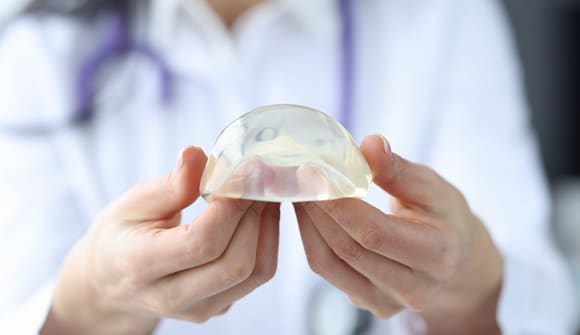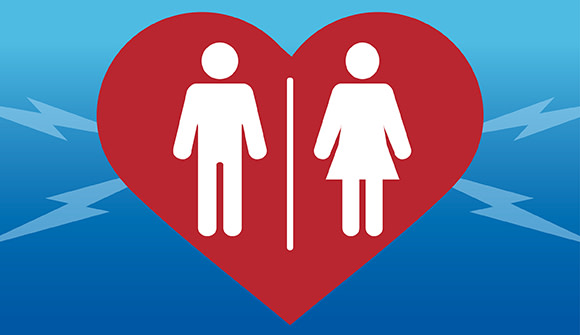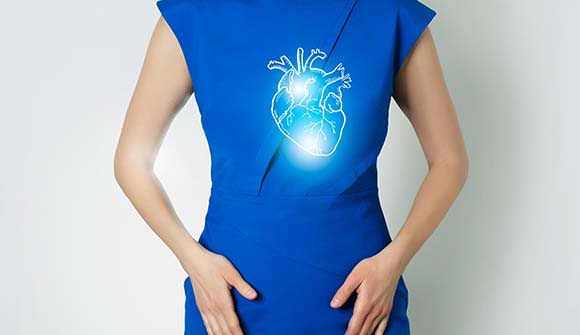Are breast implants safe?
Learn the facts about rare type of lymphoma.
Article Date:

Every year, approximately 450,000 women in the U.S. get breast implants, including 100,000 who undergo reconstruction after mastectomy to treat or prevent breast cancer. Breast reconstruction has been used for years to help women reclaim their bodies after mastectomy.
What is BIA-ALCL?
In 2019, the U.S. Food and Drug Administration began investigating the safety of breast implants after reports they may cause breast implant-associated anaplastic large-cell lymphoma (BIA-ALCL). BIA-ALCL is a type of non-Hodgkin's lymphoma that affects an unknown number of women, with published rates ranging from one in 3,800 to one in 30,000.
Currently, the FDA is aware of 1,264 confirmed cases of BIA-ALCL out of the estimated more than 35 million women worldwide who have implants. Textured implants were used in almost 100% of cases of BIA-ALCL, with the vast majority made by a manufacturer whose product is no longer available in the United States. Implants with textured surfaces are sometimes used for patients who have had implants before that wouldn't stay in place.
Benefits vs. risks of breast implants
Because rates of BIA-ALCL are low and implants have the potential to help women's quality of life after breast cancer treatment, doctors balance the benefits and risks.
Ankit Desai, MD, a plastic and reconstructive surgeon at Baptist MD Anderson Cancer Center whose primary area of focus is reconstructive surgery for breast cancer patients, said, "BIA-ALCL is a real disease that happens. The actual incidence is less than being hit by lightning. It's rare and related to the use of textured implants, which we're just starting to understand."
"Some patients may benefit from the use of textured implants mostly used in conjunction with shaped/gummy bear implants, but we rarely utilize textured implants in the United States," said Dr. Desai. "I would discuss the benefits and risks with the patients so they can make an informed decision about what is best for their needs. But it must be part of their decision."
Dr. Desai feels women who are interested in breast implants or reconstruction should feel comfortable asking their doctor any questions they may have.
"The breast implant is the most studied medical device in the world, and data suggest it's reasonably safe with high patient satisfaction," he said.
What causes BIA-ALCL?
"Ideally, we could identify a true incidence of BIA-ALCL and find out the exact cause so that maybe it can be prevented," said Dr. Desai. "The theory is that BIA-ALCL is caused by a prolonged inflammatory reaction that can flip a switch and develop into lymphoma. There's a bacterium that may be linked to creating a chronic inflammatory response, which may be associated with patients who have had a textured implant because there are more areas for bacteria to hide."
Laila Samiian, MD, a breast surgical oncologist and director of the Breast Program at Baptist MD Anderson Cancer Center, said BIA-ALCL is an uncommon cancer of the immune system involving the capsule of the implant.
-

Baptist MD Anderson Cancer Physicians
Laila Samiian, MD, FACS
Breast Surgical Oncologist, General Surgeon
"It's usually found when patients develop a chronic fluid collection, or seroma, around the implant many years after getting their breast implants," she said. "It can also present as a thickening of the capsule around the implant or masses next to the breast implant. Diagnosis is made by sampling the fluid and biopsying the capsule."
Symptoms and treatment
Dr. Samiian recommended women with breast implants be aware of any changes to their breasts such as a mass, persistent swelling, redness, change in size and shape of the breast, or skin lesions, and contact their health care provider promptly if they notice any changes. An ultrasound or MRI of the breast can be used to evaluate any symptoms.
The removal of a textured implant or replacement to smooth implants has been shown to decrease the risk of BIA-ALCL, she said.
"Breast implants don't cause breast cancer. However, it can make it more challenging to pull the entire breast tissue into view for mammography," said Dr. Samiian. "Some areas near the far edges of the breast may not get imaged adequately. Therefore, if a woman feels a mass in her breast, she should still be evaluated by a breast specialist or breast surgeon, even if her mammogram was negative."
Do you have breast implants?
Women with breast implants should receive annual screening mammograms (or more often if their doctor recommends it) and contact their primary care physician if they have questions about their health. If you don't have a primary care doctor, please call 904.202.4YOU to find one.
Source: FDA.gov




